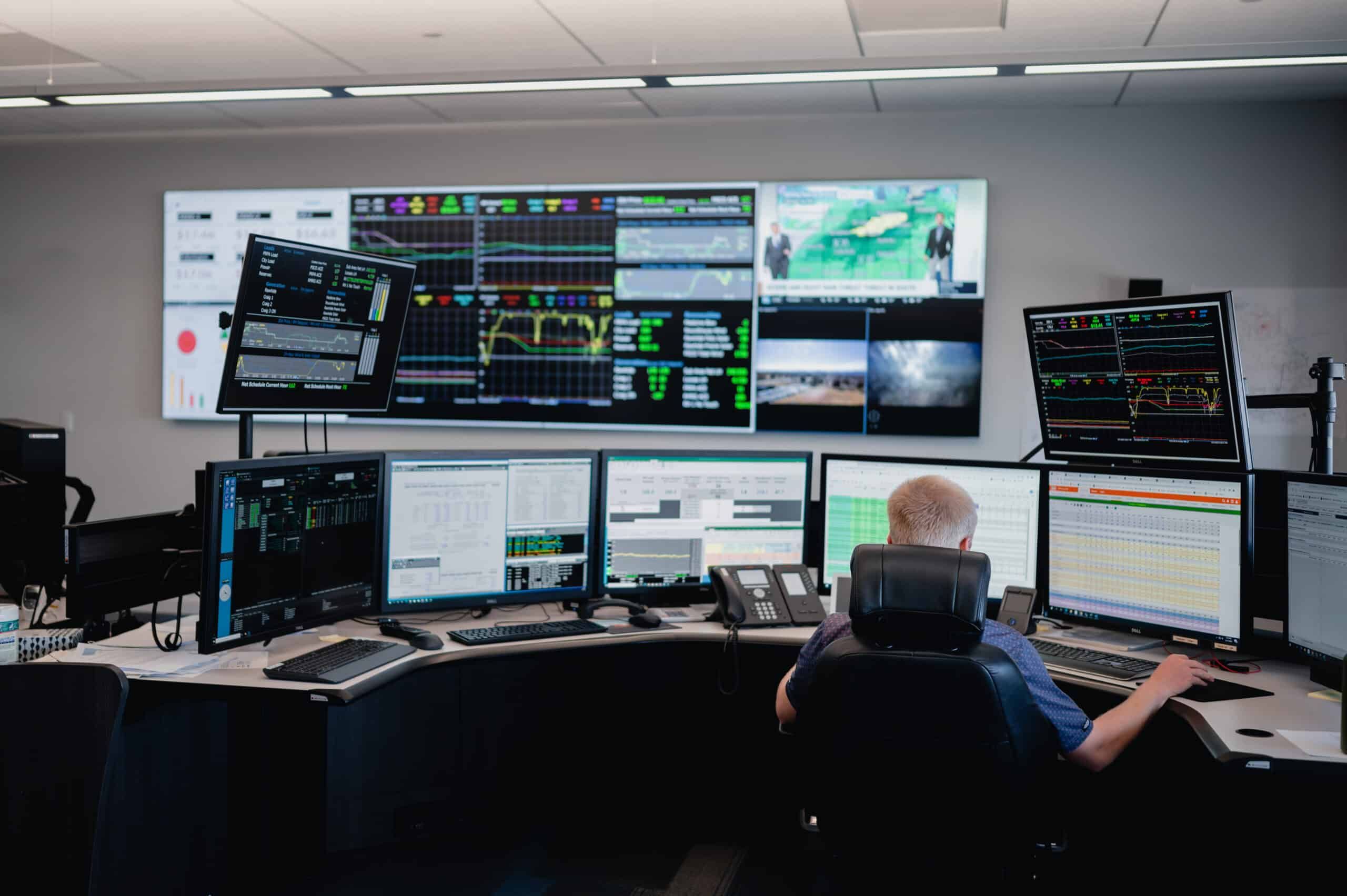Applied Computer’s offering nets $3 mil.
FORT COLLINS – Applied Computer Technology Inc., a Fort Collins-based computer company, raised about $3 million by selling 1 million shares of common stock Oct. 25.
Applied Computer assembles and manufactures turnkey custom and brand-name microcomputer systems.
The initial public offering, underwritten by Schneider Securities Inc. of Denver, was made on the National Association of Securities Dealers Automated Quotations SmallCap Market and the Pacific Stock Exchange, under the symbols ACTI and ACT respectively.
SPONSORED CONTENT
How market participation facilitates the region’s renewable energy use
Platte River Power Authority joined an organized energy market in 2023 and will join another in 2026. Read more about the how these efforts benefit the communities of Estes Park, Fort Collins, Longmont, and Loveland.
The stock was offered at $3.60 per unit and closed at $4.38 for the common stock and 86 cents for the warrant, which trades under the symbol ACTIW.
About 169,000 shares were exchanged during the first full day of trading. The opening price on Oct. 26 was $5, with a high of $5.25 and a low of $4.60. The bid was $4.94 at the close of trading.
“Trading was pretty heavy considering the size of the offering,´ said Scott Olson, vice president of sales for Schneider. “There is a lot of demand for it because it’s a good company and the investors are optimistic about their future.”
The offering is expected to fund ACT’s expansion into southern Wyoming, pay down debt and strengthen its position against competitors that include Random Access Inc., Lewan & Associates and CW Electronics Sales Corp.
The company will continue to provide custom-assembled microcomputers but also intends to further develop and strengthen its networking services and expand its marketing and sales efforts to capture more network customers.
According to the preliminary prospectus, a physical location in Wyoming will give ACT preference in the state bidding process.
The company’s principal customer base includes various corporate and government entities.
In the first six months of 1995, Colorado State University and Ball Aerospace Corp. each accounted for about 13 percent of the company’s sales. Sales to the departments of the Army and Air Force will each account for more than 10 percent of the company’s sales and service revenues this year.
But a company may not live by government contracts alone.
K.C. Schwarz, a technology analyst for the investment banking firm Hanifen, Imhoff Inc., said that while the government buys billions of dollars in computer equipment each year, the risk is that “the arrangement has no duration of commitment.”
Further, Schwarz said, ACT’s profitability may be limited by competition with the five largest clone computer manufacturers, Packard Bell Electronics, Dell Computer Corp., Gateway 2000 Inc., Compaq Computer Corp. and Hewlett-Packard Co.
“It is a hugely competitive business that is very, very price sensitive,” Schwarz said. “Compaq is literally beating out other vendors for nickels and pennies. And when Compaq goes to Seagate and Connor (and asks for a volume discount), they listen. When ACT goes to Seagate for 1,000 drives, they say ‘Hmmm, list price.’ That’s the hill they’re trying to climb.
“It doesn’t surprise me that ACT is showing a business direction that gives some promise of growth by moving into networking and network services.”
Still, ACT’s long-term commitment to customer service can place it ahead of the big companies. Schwarz, formerly a Ball Aerospace executive, said ACT found a contract at Ball after a larger vendor was thrown out for shipping improperly configured systems to the company.
“There were very good reasons for going with Compaq (as a replacement contract), but they were far outweighed by what ACT provided at the time, which was a combination of an aggressive support policy and custom configurability,” Schwarz said.
Schwarz said that in the future, trading in ACT’s stock likely will be light and among individual investors who can wait for their stake to mature.
ACT was founded in 1989 by Wiley E. “Bud” Prentice Jr. Since then, the company estimates that it has sold some 30,000 microcomputers to customers located primarily in Wyoming and Colorado.
The company was profitable for the first four years it was in existence, the prospectus said. In 1994, ACT reported a net loss of $178,000 on sales and service revenues of $11.7 million.
For the first six months of 1995, the company posted unaudited net income of $118,000 on sales and service revenues of $6.7 million.
FORT COLLINS – Applied Computer Technology Inc., a Fort Collins-based computer company, raised about $3 million by selling 1 million shares of common stock Oct. 25.
Applied Computer assembles and manufactures turnkey custom and brand-name microcomputer systems.
The initial public offering, underwritten by Schneider Securities Inc. of Denver, was made on the National Association of Securities Dealers Automated Quotations SmallCap Market and the Pacific Stock Exchange, under the symbols ACTI and ACT respectively.
The stock was offered at $3.60 per unit and closed at $4.38 for the common stock and 86 cents for the warrant, which trades under the symbol ACTIW.
About 169,000 shares…
THIS ARTICLE IS FOR SUBSCRIBERS ONLY
Continue reading for less than $3 per week!
Get a month of award-winning local business news, trends and insights
Access award-winning content today!

